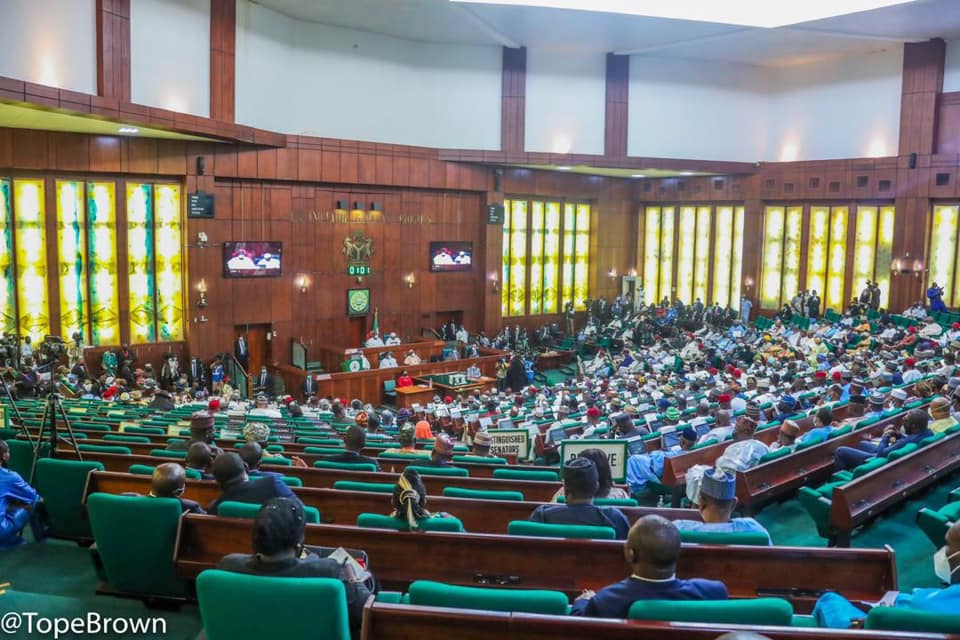Business
Aviation Fuel Hike: Reps, NNPC, Others Intervene

Following the astronomical hike in Aviation Turbine Kerosene, popularly called aviation fuel, and subsequent cancellations of flights resulting in overcrowding of Nigeria’s airports, the House of Representatives and other key stakeholders have intervened.
The intervention came sequel to a threat by domestic airlines under the Airline Operators of Nigeria, to shut down operations this week over skyrocketing aviation fuel price, during the investigative hearing by the House on fuel hike in Abuja on Monday.
The Tide’s source in Abuja said the threat forced the Deputy Speaker of the House, Ahmed Wase, and other major stakeholders to convene what is described as an emergency meeting within-the-meeting to address the issue.
Such stakeholders include: Group Managing Director, Nigerian National Petroleum Company Limited, MeleKyari; Chairman of Air Peace and Vice-President of the AON, Allen Onyeama; Chairman, Major Oil Marketers Association of Nigeria, OlumideAdeosun; and Chairman, Depot and Petroleum Marketers Association of Nigeria.
Kyari, who read out the resolution from the meeting, said, “We know this is a very difficult situation. We know that once aviation fuel increases, prices of flight tickets will certainly increase and this can surely cause pains for Nigerians.
“That is why we are working with you to ensure that those pains were minimised to the barest minimum. And one of the elements is the pricing of aviation fuel.
“So, what we have engaged with MOMAN, DAPMAN and the airline operators is that in three days’ time, their representatives will sit down and agree on a transparent base for pricing. That means that they ought to have a referenced benchmark that is quoted transparently in the market.
“They will have a referenced exchange rate for the naira so that everyone can compete. They will also agree on a premium, which currently differs from customer to customer, depending on the volume you buy and the credit level”, the NNPC boss stated.
Meanwhile, the jump in the cost of aviation fuel has resulted in over-crowded airports, as airlines reschedule and cancel flights at short notice, leaving passengers stranded.
Following the development and subsequent intervention by the House of Representatives on Monday, the Federal Government, airline operators and oil marketers agreed to peg the price of the commodity at N500/litre pending the resolution of the rising price crisis of the commodity.
The current price of aviation fuel is N670/litre and this cost has led to a crisis in the sector such as flight delays and cancellations due to the inability of airlines to easily access the commodity at that cost.
Transport
Automated Points Concession : FAAN Workers Gave 72hrs To Revise Decisions In PH

Transport
FAAN Announces Pick-Up Points for Go-Cashless Cards

Business
Fidelity Bank To Empower Women With Sustainable Entrepreneurship Skills, HAP2.0
-
Politics4 days ago
2027: NIGERIANS FAULT INEC ON DIGITAL MEMBERSHIP REGISTER DIRECTIVE
-

 Environment4 days ago
Environment4 days agoLAWMA Director Says Sweeping Reforms Have Improved Waste Collection
-
Politics4 days ago
LP Crisis: Ex-NWC Member Dumps Dumps Abure Faction
-

 Politics4 days ago
Politics4 days agoUmahi Dismisses Allegations On Social Media, Insists On Projects Delivery
-

 Sports4 days ago
Sports4 days agoAbia Not Sure To Secure continental Ticket
-
Politics4 days ago
NATASHA ELECTRIC VEHICLES INITIATIVE IN KOGI CENTRAL
-
Sports4 days ago
La Liga: Yamal Records First Career Hat-trick
-

 Sports4 days ago
Sports4 days agoPSG Extend Lead In Ligue 1

